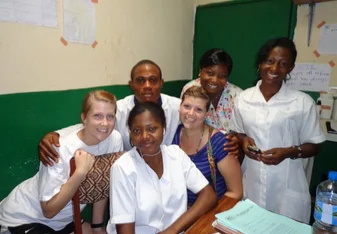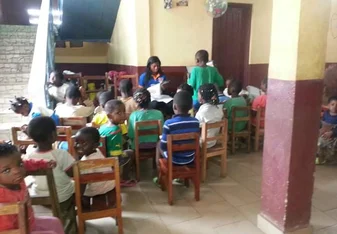Environmental Education Volunteer
- Cameroon
About Program
The Community Environmental Conservation (CEC) project is focused on supporting environmental education in schools, promoting environmental conservation practices at the community level, as well as life skills, gender and youth empowerment for community members and schools. Volunteers will be seen as role models to youth and adults alike. They will work in schools with teachers and students on specific environmental themes based on their educational background and experience as well as addressing the needs identified by community members.
Through their work with adult groups, Volunteers will develop environmental activities such as organic gardening, nursery/reforestation, waste management and promoting appropriate technologies like eco- stoves, and the use of renewable energy (solar panel). They will also work with different stakeholders to develop sustainable living strategies and techniques that allow community members to live in their communities while conserving their ecosystems
Video and Photos
Program Highlights
- Learning opportunity
- Taste local food
- Visit touristic sites
- Expirience a different culture
Program Impact
There is no denying the amazing benefits of planting trees, under any circumstances, anywhere in the world. They fight climate change. They clean our air and water. They keep soil from eroding. They create homes for crawly critters and birds. And they are beautiful, improving nearly any landscape. The Bamenda Highlands, an area known to support high levels of biological diversity and endemism has been identified as a high risk zone for deforestation and degradation due to unsustainable agricultural practices in the region. Planting trees here will help conserve habitat for the wildlife and hundreds of other species living in the region, while providing sustainable livelihoods to local people.







